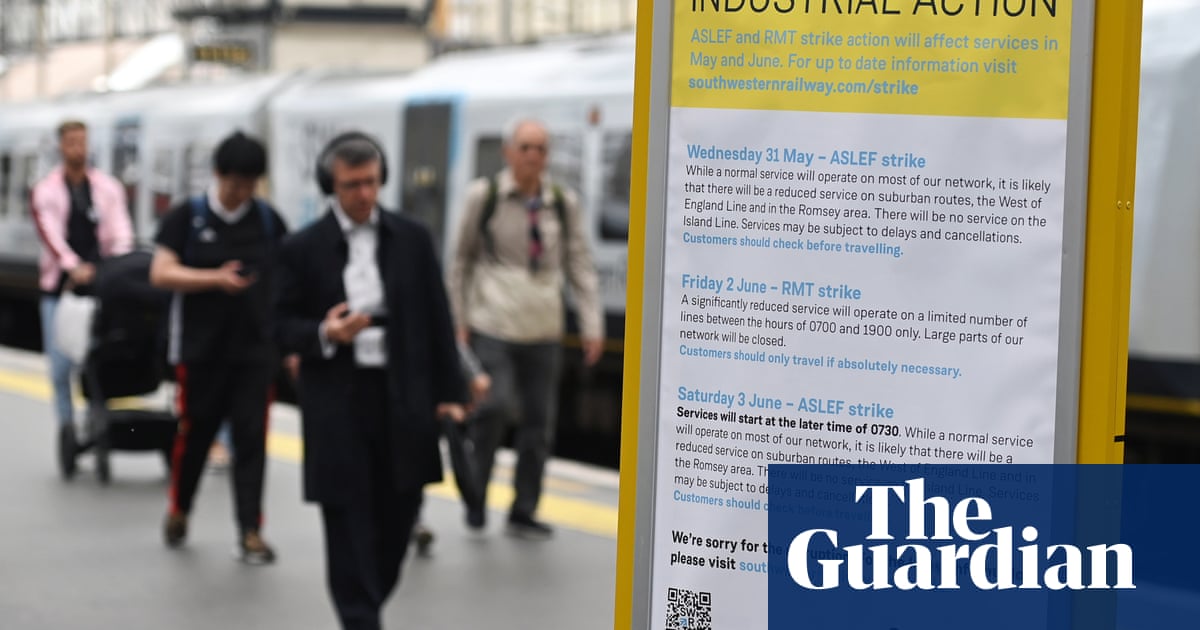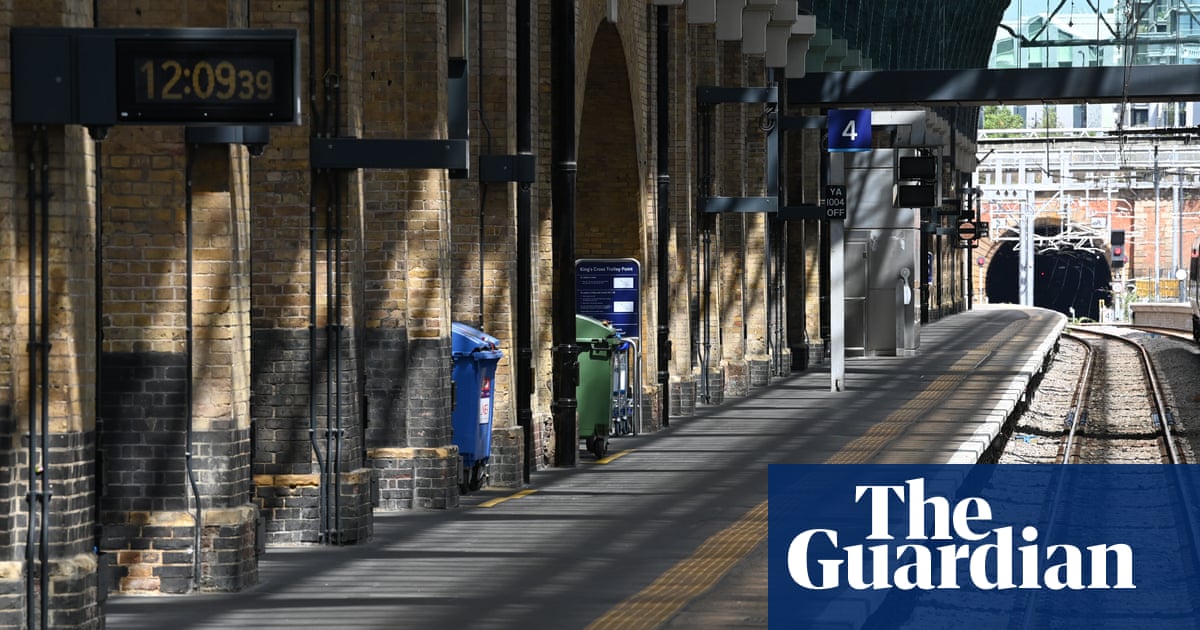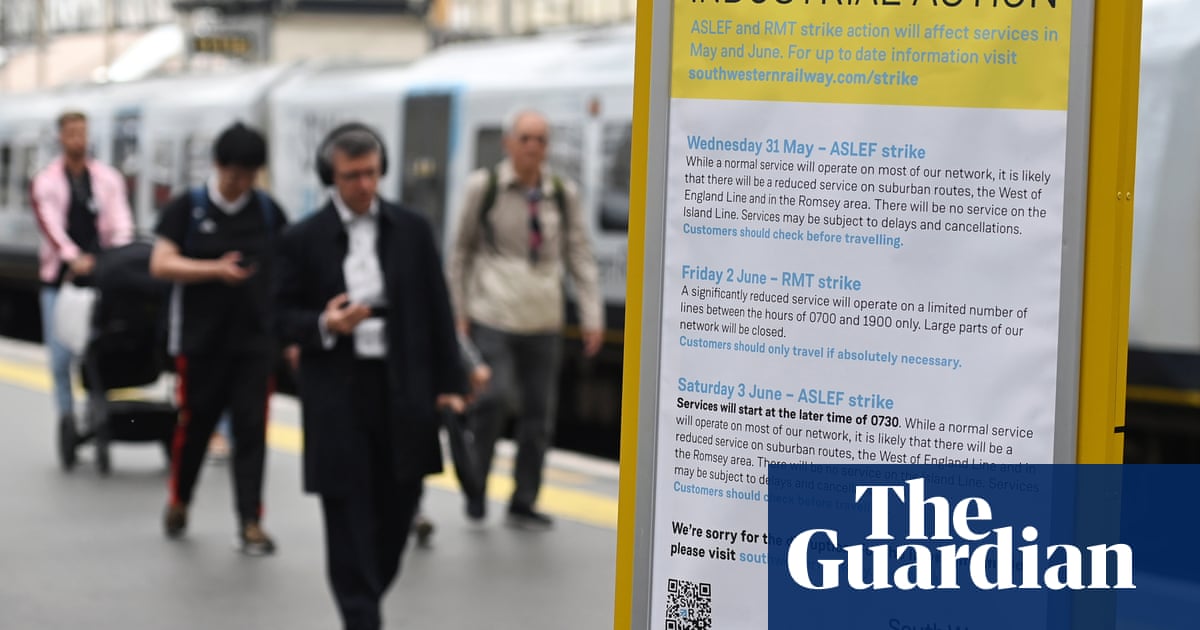
Rail passengers in the north of England face major disruption on Wednesday as strikes by train drivers stop all Northern and TransPennine Express (TPE) services.
The 24-hour strike is the second in a series of rolling stoppages over a week by members of Aslef, the drivers’ union, in the long-running pay dispute.
It follows strikes that wiped out the biggest national rail commuter services in southeast England on Tuesday. Passenger numbers on the tube were down 10% from last Tuesday with many rail commuters unable to reach the capital, according to figures from Transport for London.
Both Northern and TPE have warned customers not to attempt to travel on Wednesday as no services will run, including on TPE’s routes into Scotland. An overtime ban that started on Monday across all the operators in England is also expected to bring more short-notice cancellations to services and potential disruption until next Tuesday.
While the government hoped that its recently passed anti-strike laws would push train operators to enforce minimum service levels (MSLs) this week, none have attempted to deploy the powers. LNER, one of the four state-run operators, was faced with five additional days of strikes after tentatively starting the process, until it withdrew plans to enforce the strike-busting law.
Unions have said that MSLs are unworkable. However, Downing Street piled on pressure this week by claiming that they were “a key tool that train operators themselves have asked for to reduce the impact of disruption on passengers. They should now use them”.
Train operators, however, told House of Commons hearings last year that they had no clarity over how they should be used. A senior rail industry source said it was not true that operators had lobbied for the anti-strike powers – a Conservative manifesto pledge – and instead had warned that they were likely to exacerbate industrial unrest.
Further strikes will follow at LNER, Greater Anglia and C2C on Friday. No trains will run across West Midlands Trains, Avanti West Coast and East Midlands Railway during strikes on Saturday.
The overtime ban’s impact is likely to peak on Sunday, reducing timetables at a number of operators which rely on voluntary rest day working. The last strikes will take place at Great Western, CrossCountry and Chiltern on Monday.
The pay dispute affects train operators in England contracted to the Department for Transport (DfT), although the industrial action will also affect some cross-border services to Scotland and Wales.
The Rail Delivery Group (RDG), which represents train operators, has advised passengers to check before they travel throughout the week.
Aslef has warned it will continue strikes until there are further negotiations on a pay deal. It said some drivers were now approaching five years without a pay rise, after working through the pandemic.
The RDG said Aslef should stop calling “damaging industrial action” and work with them to resolve the dispute and make “the changes needed to make services more reliable”.
Huw Merriman, the rail minister, said: “Passengers are being targeted by Aslef’s decision to go on strike, despite union bosses having an offer on the table that would take train drivers’ average salary up to £65,000 for a four-day week.
“While the RMT [National Union of Rail, Maritime and Transport Workers], TSSA [Transport Salaried Staffs’ Association] and Unite have all agreed deals for their members, Aslef’s leadership isn’t even putting the fair offer on the table to a vote of their members.”












